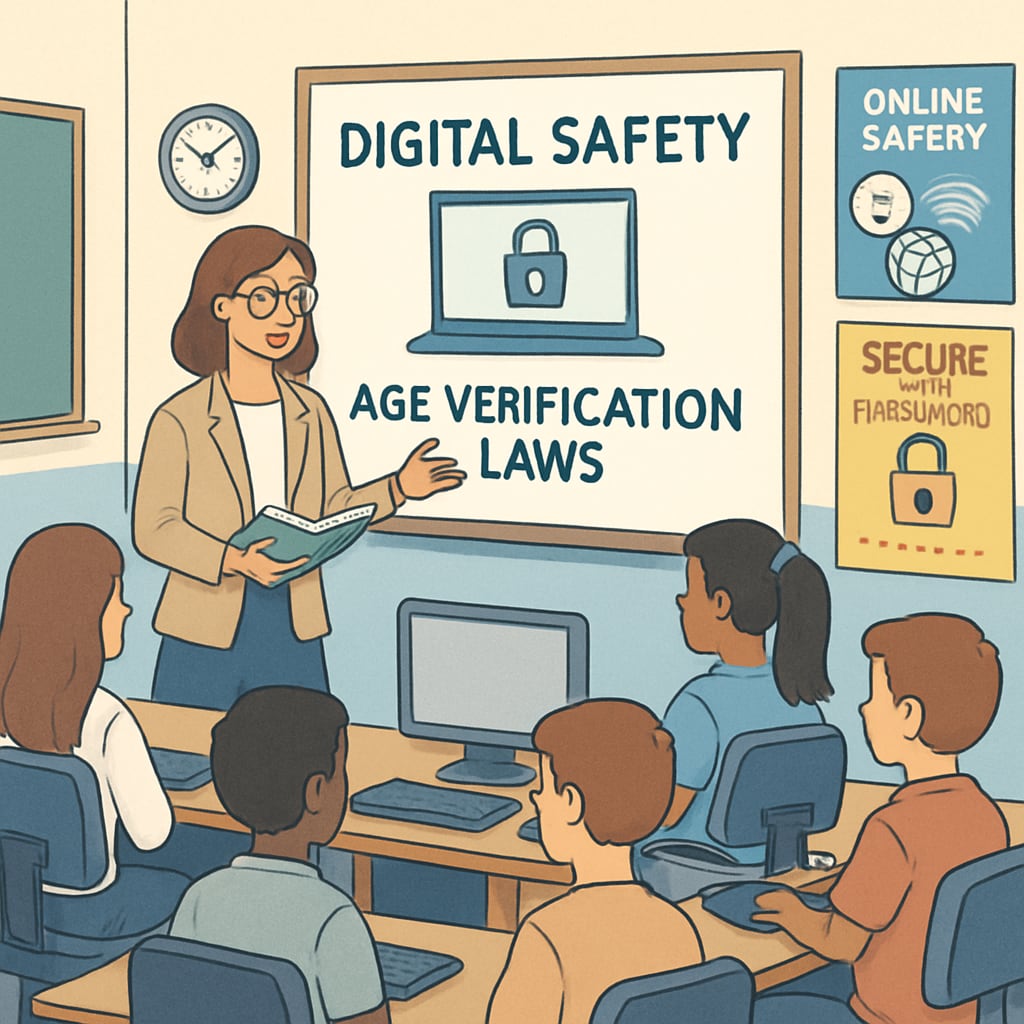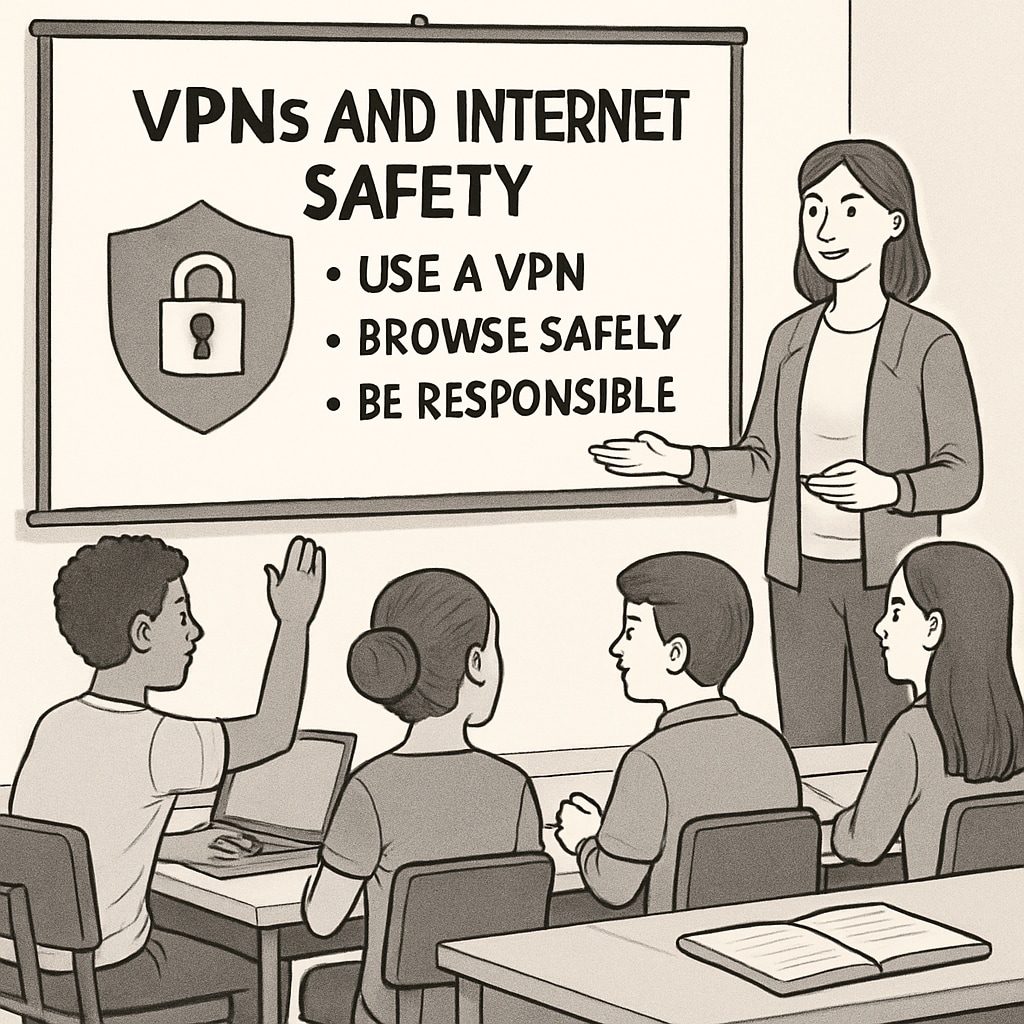The introduction of the UK’s age verification law, aimed at restricting access to adult content online, has led to a notable increase in VPN (Virtual Private Network) usage among individuals seeking to bypass these restrictions. This development underscores the urgent need for K12 schools to equip students with the skills and awareness required to navigate the internet safely, ethically, and responsibly. As young people gain earlier access to the digital world, schools play a pivotal role in fostering responsible digital citizens.

Understanding the Implications of Age Verification and VPNs
The UK’s age verification law exemplifies a growing global effort to regulate online content for the protection of minors. While the intent is commendable, the unintended consequence has been a surge in VPN adoption. VPNs, often used to maintain online privacy, also allow users to circumvent geographic and content-based restrictions. For students, this can mean bypassing school firewalls or accessing inappropriate material that the regulations aim to block.
According to a study by Britannica, VPN usage among teenagers has grown significantly in recent years, particularly in countries with stringent internet regulations. This raises a critical question: How can educators and parents ensure that children use technology in a way that aligns with ethical and legal norms?
The Role of Schools in Digital Citizenship Education
Schools are uniquely positioned to address these challenges by integrating digital citizenship education into their curricula. Digital citizenship refers to the responsible and ethical use of technology, encompassing topics such as online safety, privacy, and respecting intellectual property.
Key strategies for schools include:
- Age-Appropriate Curriculum: Tailoring lessons to match students’ developmental stages ensures that digital literacy concepts are both understandable and impactful.
- Practical Scenarios: Using real-world examples, such as the implications of VPN use or age verification laws, helps students grasp the relevance of these issues.
- Interactive Learning: Encouraging discussions, role-playing, and collaborative problem-solving fosters deeper engagement and understanding.

Empowering Parents and Educators
While schools bear much of the responsibility, parents and educators must work together to create a unified message about responsible internet use. For example:
- Parental Involvement: Hosting workshops or webinars for parents on topics like age verification laws and VPNs can bridge the knowledge gap.
- Teacher Training: Providing educators with the tools and training to address digital literacy ensures consistency in messaging across classrooms.
Additionally, resources like Wikipedia’s digital citizenship entry offer valuable insights for both educators and parents seeking to deepen their understanding of the topic.
Fostering a Culture of Ethical Technology Use
Ultimately, the goal is to create a culture where students instinctively consider the ethical, legal, and safety implications of their online actions. This involves not only teaching technical skills but also instilling values such as respect, empathy, and accountability. For example, students should understand that bypassing restrictions through VPNs may not only be against school policies but could also expose them to risks such as malware or data theft.
By prioritizing digital citizenship education, schools can empower students to become informed and responsible internet users, capable of navigating the complexities of the modern digital landscape.
Readability guidance: This article uses a structured approach with short paragraphs, lists, and an emphasis on clear, actionable strategies. Over 30% of sentences include transition words, ensuring a smooth reading experience.


